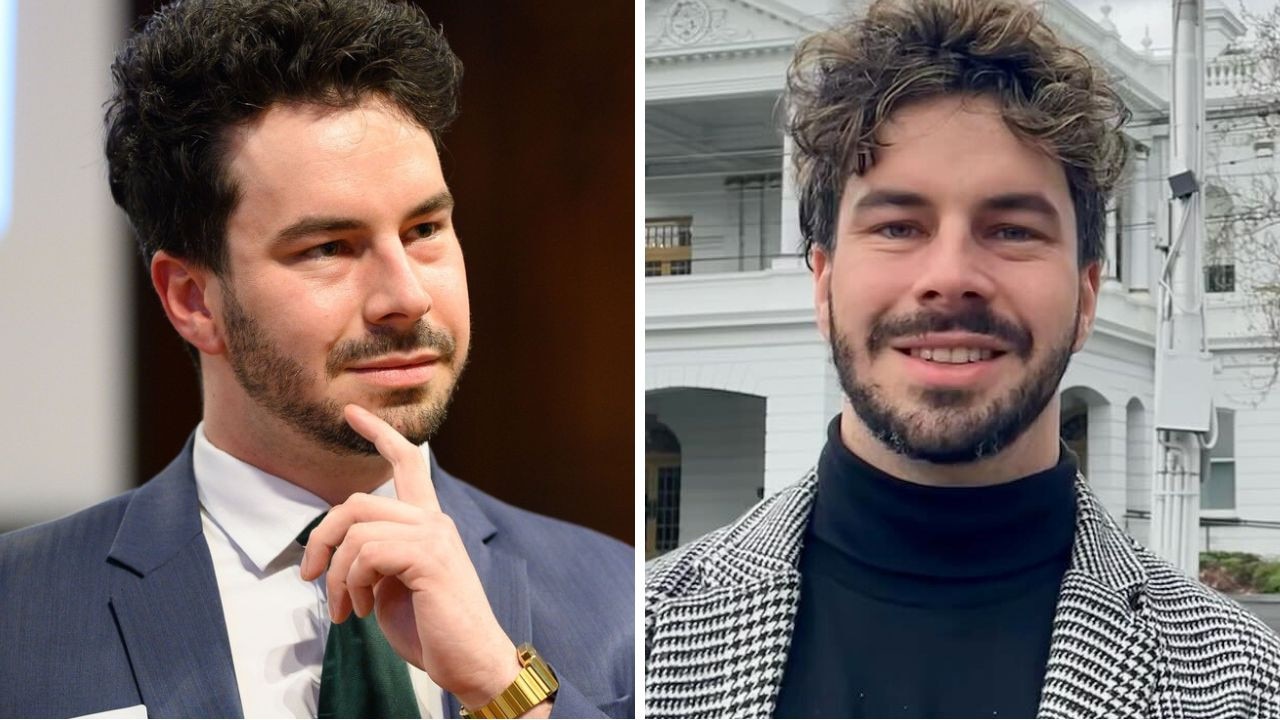Every six weeks an emergency services worker in Australia commits suicide
WARNING: Graphic content. Al’s nightmares are vivid, terrifying and endless. People like him are suffering in silence among us.
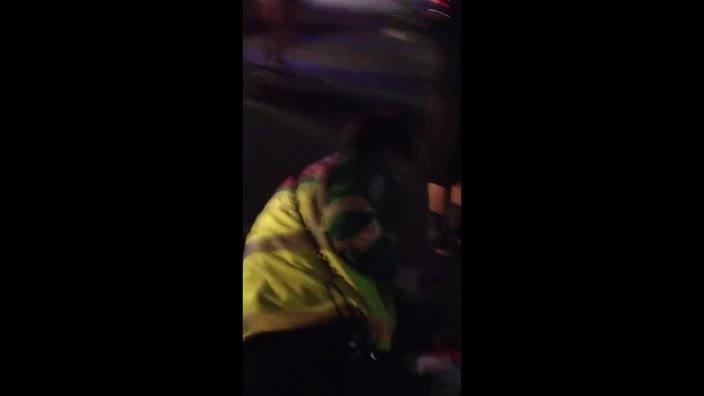
Work
Don't miss out on the headlines from Work. Followed categories will be added to My News.
WARNING: GRAPHIC
THE nightmares are so vivid for Al Briggs that he can still feel the dead little girl in his arms.
It was eight years ago and the veteran ambulance officer — one of the thousands of Australian emergency workers suffering from post traumatic stress disorder — is still haunted by the girls death.
“Her face was pale and her long, blond hair was messed up. She was in her pyjamas, it was in the morning, and she’d snuck out the front door of the house to follow her brother who was going to kick a footy around.”
The nightmare was so intense and was one of several that kept occurring, one of the symptoms he was suffering post traumatic stress.
“I picked her up and carried her. Sometimes I wake with a start because its almost like I can still feel [myself] carrying her.”
New figures reveal one police officer, paramedic or firefighter is taking their own life every six weeks. But the true extent of the problem is unknown and the actual number may be much higher.
The Intentional Self-Harm Fact Sheet is based on coronial cases around Australia and shows 110 police officers, paramedics and firefighters died by suicide between July 2000 and December 2012.
It is the first time the number of suicides among emergency service personnel has been officially quantified in Australia.
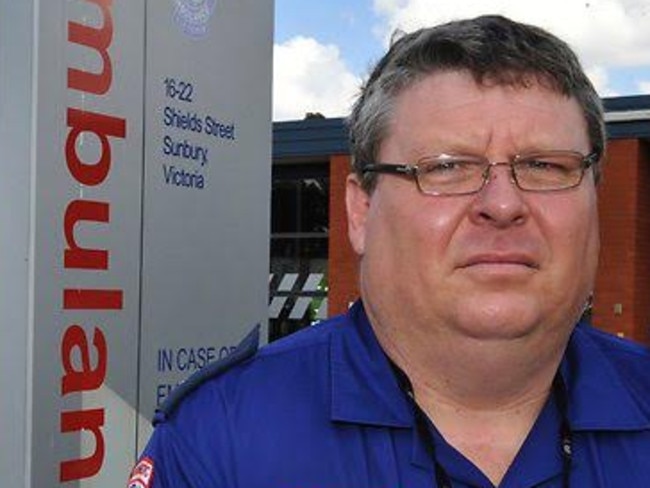
A breakdown of the 110 deaths shows 62 cases involved police officers, 22 involved firefighters and 26 were paramedics.
Most were men between 30 to 49 years and a formal diagnosis of depression was identified in a small number of cases.
The numbers come as no shock to Mr Briggs.
“It’s not an unusual place to find yourself if you spend a bit of time in the emergency services.”
He has spent 20 years with the Victorian ambulance service. By the time he got to the 15 year mark he realised he was in trouble.
“With hindsight I was probably struggling for a (while) years before then but didn’t realise what was going on.”
Something he had to keep telling himself was that as an emergency services worker he was seeing people “on their worst day” and it wasn’t representative of society in general.
But there were expectations, or perceptions, of frontline workers.
“Emergency services tend to be one of those helping cultures where you attend people on their worst day ... So you should be the strong one. So it doesn’t sit well.”
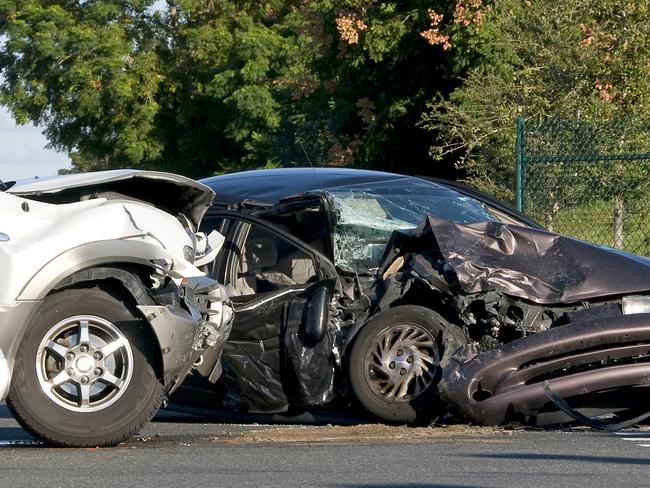
The job with the dead little girl and another where a 19-year-old female was killed in a car crash were the jobs that pushed him to breaking point.
“I describe it like a champagne cork popping — the pressure is building up underneath.”
It exploded in the form of nightmares, grumpiness and insomnia. After the little girl was run over he sat up all night, exhausted, but unable to sleep.
He is still affected by PTSD but it has gotten easier. The key message he believes other emergency workers need to take from the sobering statistics was to seek help and don’t be afraid of it.
“There’s a good number of ambos who’ve said “I’m struggling, what am I going to do — because they’re waiting for someone to ask. It’s extraordinary the number of blokes that are struggling.”
‘I think I got to 40 fatalities before I started having too much baggage’
Ross Beckley understands that all too well. A former firefighter with NSW Fire and Rescue he was medically discharged because he was treated as a liability after 21 years service.
In fact, he was suffering from PTSD.
He told news.com.au: “I think I got to 40 fatalities before I started having too much baggage and not dealing with it — that’s when the trouble started.”
Even driving down a road where he’d been to a fatal crash was too much and he would avoid certain roads, even if it tripled the travelling time
One journey which should take him seven minutes used to take him half-an-hour when he was in the grip of PTSD.
Mr Beckley said there had always been that “harden up attitude” and at the time there was no proactive program to deal with the problem.
Since he left the fire service he and his partner have put together their own program to help PTSD sufferers.
“I thought I was bullet proof. I thought I could deal with it, but when it was personally happening to me it was a real struggle.”
Seeing a white cross on the side of the road would be enough to trigger a whole range of emotions.
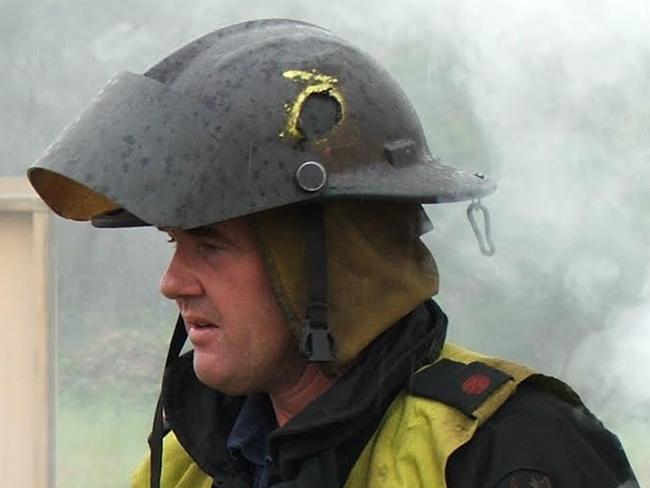
“I’d get angry, I’d get upset, I’d get reserved, aggressive, over that white cross. It’s a real triggering thing. I don’t generally watch the news or read the papers ‘cause I don’t want to be reminded of stuff that I’ve done.”
His memories are so painful they have changed they way he lives.
“I tend to avoid a lot of stuff. Left-field stuff too, it’s really weird, it’s because you don’t process the memories properly it will return much later. When you see a traumatic sight it goes to the back of your brain and you don’t deal with it.”
Outside of the fire service he was a music photographer and had his own small business. But he lost it because he would have flashbacks of fatal car accidents when he was snapping away at music events.
“There’s faces in their guitars or faces backstage just all over the place. And different things — a guitar all of a sudden would look like a dead hand hanging off a body. Your mind is a funny thing.”
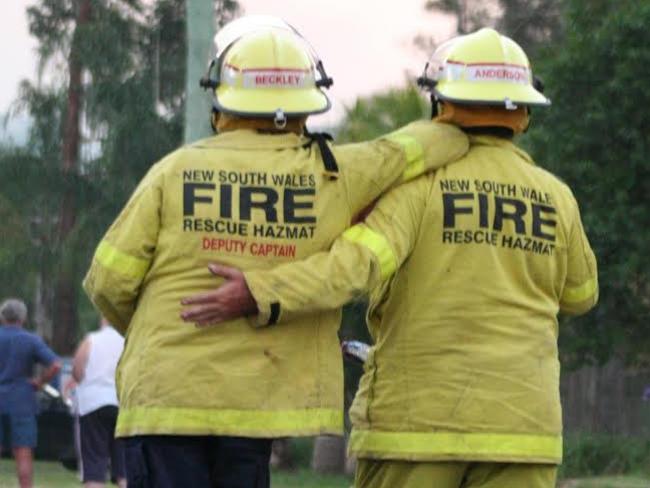
He also doesn’t eat meat on the bone anymore. “It’s just from people being crushed and burned and exploded and that sort of stuff.”
“It’s a bit like [movie] Sixth Sense — I see dead people.”
A friend of his doesn’t like the sound of hot chips because that triggers awful memories. “He had to pull a guy out of a vat of hot oil who had committed suicide and the guy was sizzling. It was about two years later his partner bought a chip fryer and put potatoes into basket and dropped in oil and he got up and spewed.”
The friend hadn’t been triggered previously but the memory of the vat suicide came rushing back.
Mr Beckley said more work still had to be done to help emergency service workers.
“They don’t realise the problem they’ve got.”
One in 10 active emergency workers had symptoms consistent with PTSD
A psychiatrist who specialises in PTSD among emergency workers believes the current way of dealing with the problem is flawed.
“We need to make it easier for people to ask for help and get help,” Dr Sam Harvey told the ABC.
“The standard way of doing things, where we wait until somebody falls over, is too unwell to go to work, and we start treatment then is really the wrong way around.”
Dr Harvey said one in 10 active emergency workers had symptoms consistent with PTSD.
“That’s much higher than you would see in the general population and if we were to consider ex-emergency workers or retired workers, that rate would be higher”.
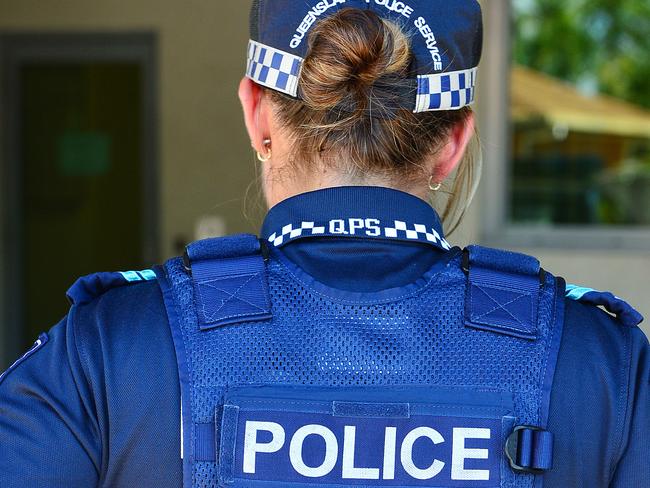
Dr Harvey, who works for the Black Dog Institute, told the ABC that later this year he planned to release some new guidelines about how PTSD should be diagnosed and treated for emergency workers.
Scott Weber, of the NSW Police Association, said all the recommendations in the report had been acted on or were about to be.
“Police forces around country used to have a medical discharge culture which wasn’t helpful to people’s wellbeing and psychological fitness.”
But changes were being made in an effort to better address the problem, while people were still employed in police and after they left.
“Now there is a real change in philosophy and culture that police forces and association have initiatives to build resilience as well as preventive measures.”
Anyone experiencing suicidal thoughts or needing help can call Lifeline (131114 or lifeline.org.au) and Beyond Blue (1300 224 636 or beyondblue.org.au)

Originally published as Every six weeks an emergency services worker in Australia commits suicide


